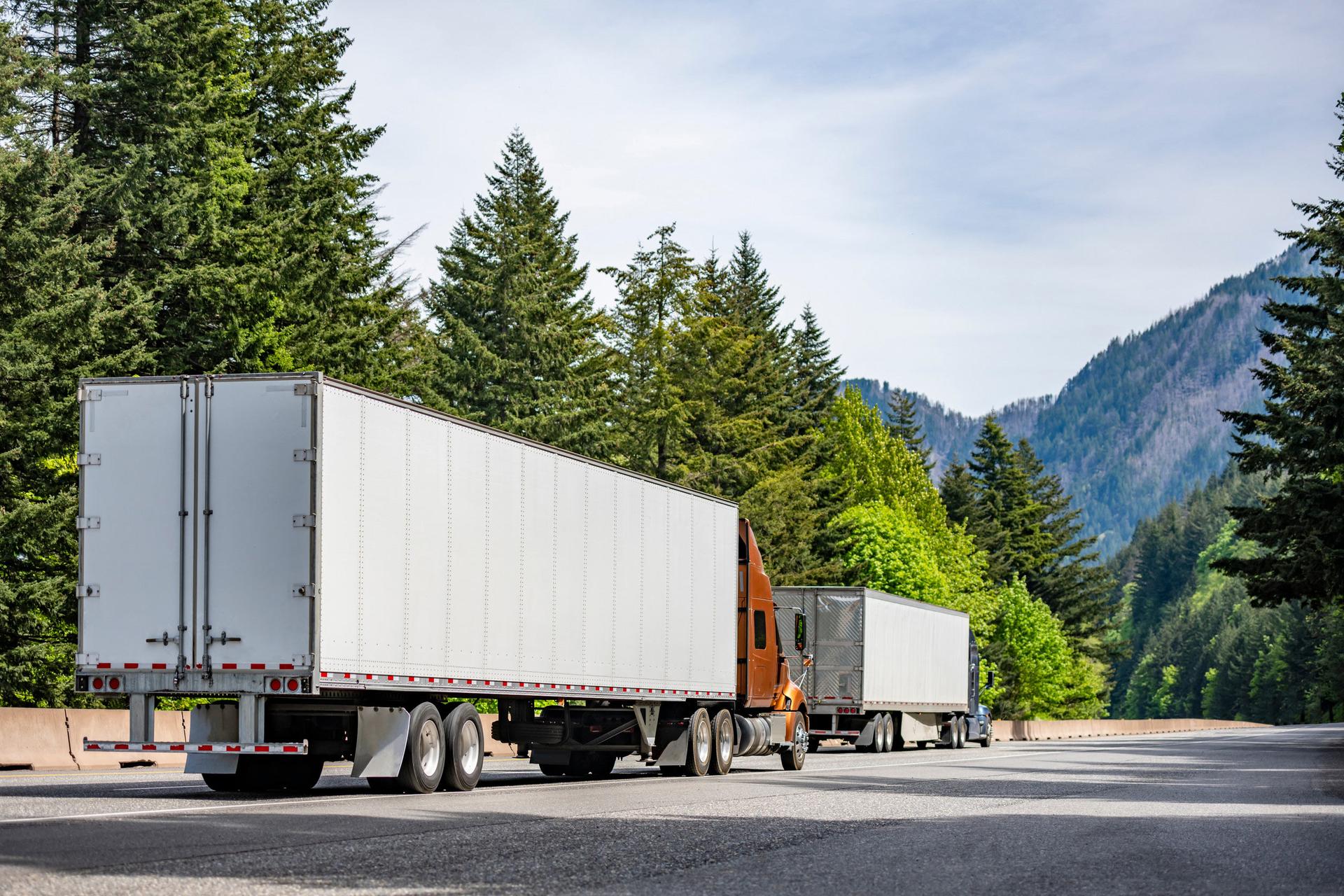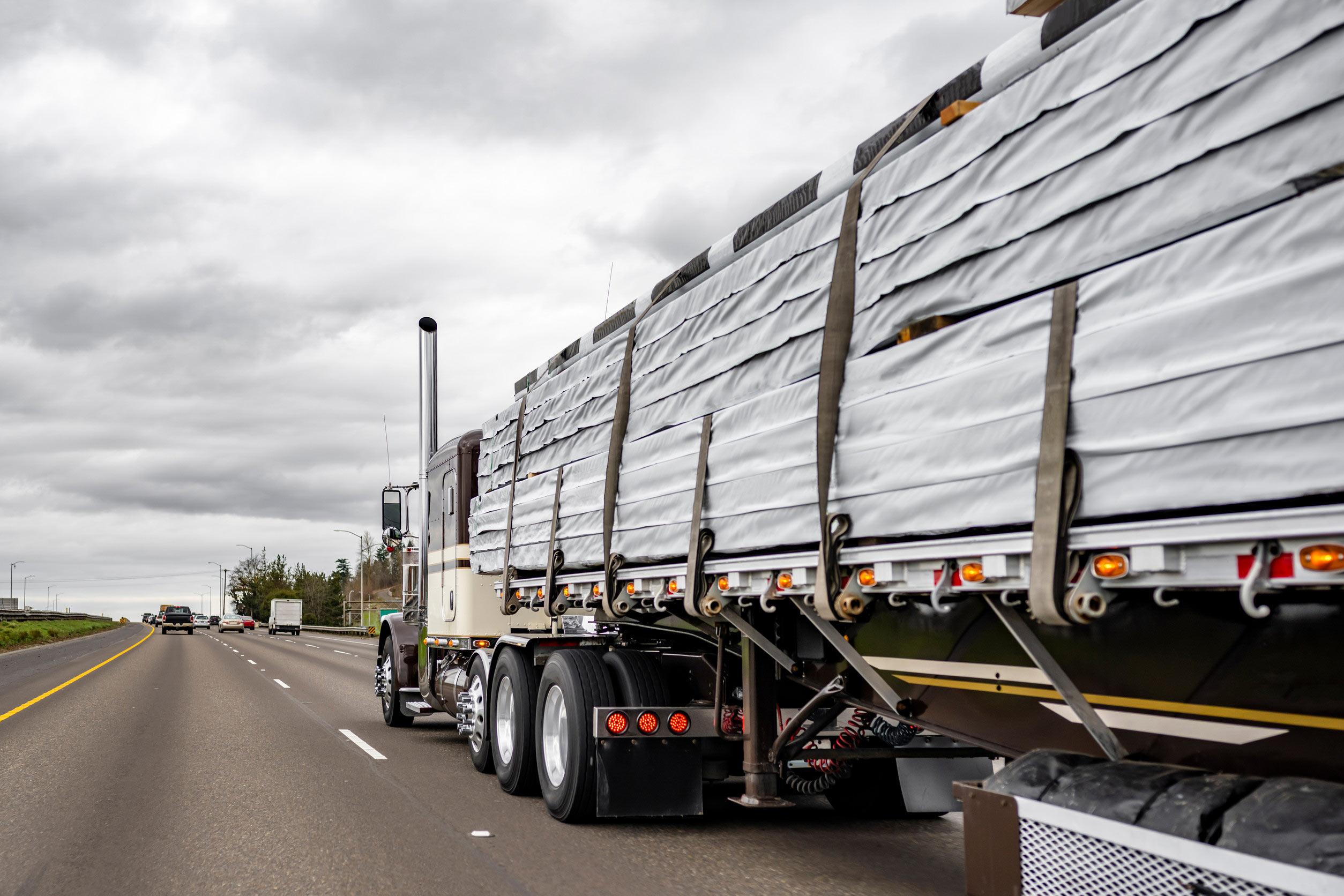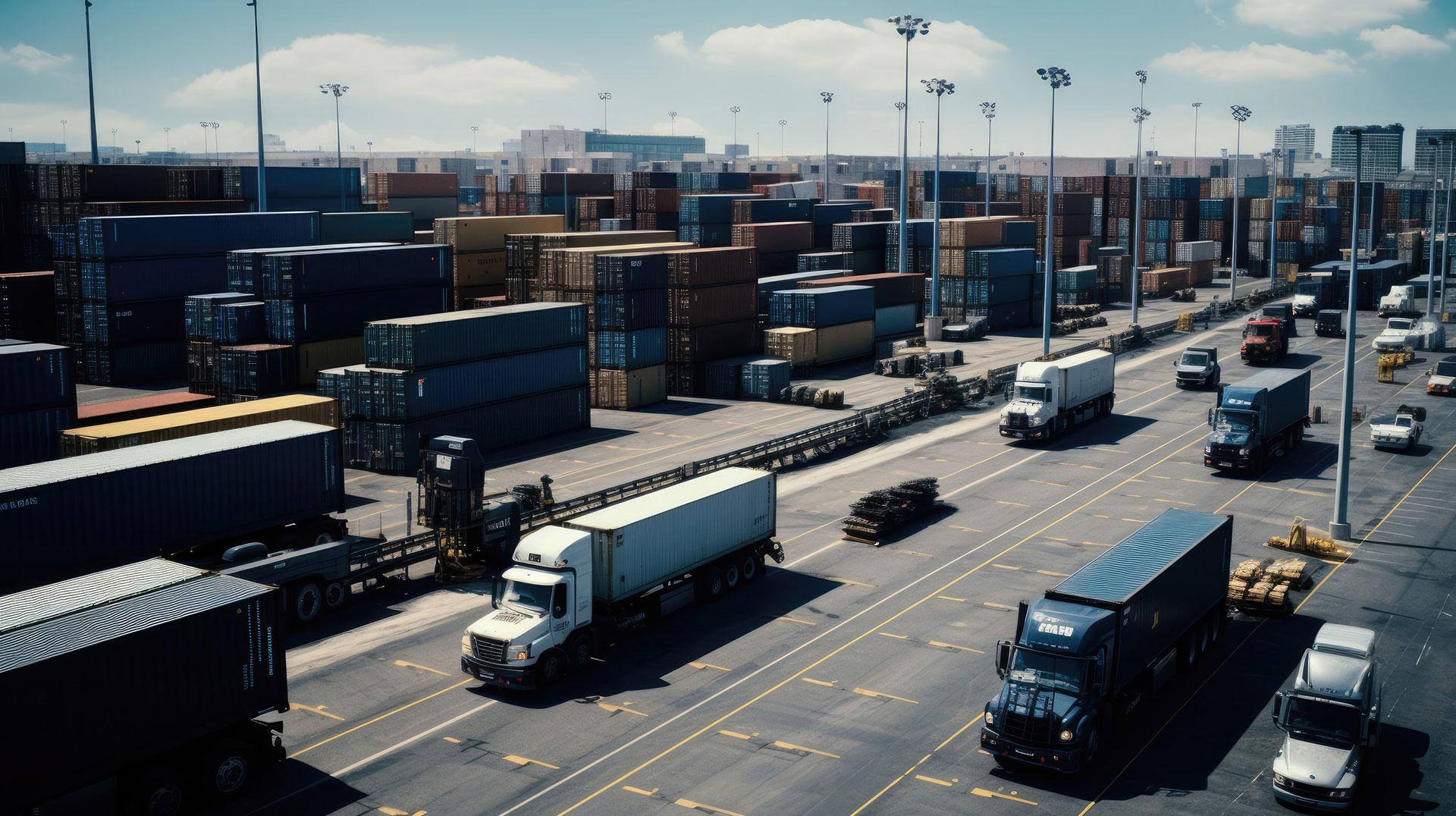Do Semi Truck Trailer Brands Matter for Operations and Efficiency
January 10th, 2025
By Arrow Truck Marketing

Trailer brands often get overshadowed by the focus on truck manufacturers, engine horsepower, and driver amenities. Yet, these “behind-the-scenes” components play a massive role in a trucking operation’s bottom line and daily workflows. Whether you’re a fleet manager looking to optimize costs or an owner-operator planning your next trailer investment, understanding how trailer brand differences can impact operations and efficiency can guide more informed decisions. Here’s a deeper look at how brand choices might matter—and where they might not.
Build Quality and Durability
Steel Vs. Aluminum
One of the most noticeable ways trailer brands differ is in what they're made of. Some trailers use aluminum for large portions of the frame and panels, reducing overall weight. Others rely on steel for greater strength, albeit at the expense of added weight. The material blend affects load capacity, fuel economy, and long-term durability.
Aluminum Trailers
: Lighter and more resistant to corrosion, which can prolong their service life, especially in regions with heavy road salt usage. However, repairs can be more specialized and potentially more expensive.
Steel Trailers
: Heavier but often easier to repair using common welding techniques. They can handle extreme stress better, although they may be more prone to rust.
Brand Reputation for Longevity
Not all trailers are created equal. Some brands have developed reputations for consistently high build quality and strict quality control processes. These brands typically charge a premium, but fleets recoup those costs through lower maintenance bills and fewer repairs over the trailer’s lifespan. On the flip side, lesser-known or budget brands can still be a valid choice if they offer decent build quality and align with your specific freight or route requirements.
Technology and Design Innovations
Aerodynamic Features
Trucking is a game of margins, and aerodynamic efficiency is one area where trailer brands try to stand out. From side skirts to tailored nose cones, these design elements promise to reduce drag and improve fuel economy. Brands investing heavily in aerodynamics use wind tunnel testing, computer simulations, and on-road validations to fine-tune their designs.
Side Skirts
: Commonly used to reduce airflow under the trailer, potentially saving several percentage points in fuel.
Rear Fairings (“Boat Tails”)
: Some brands integrate collapsible fairings at the rear to smooth airflow. While not always standard, certain brands design their trailers with seamless bolt-on points or preinstalled fairings.
Weight-Reduction Features
Weight is another battleground for trailer manufacturers. Every pound saved on the trailer’s empty weight allows for more freight, which translates to potential revenue gains. Some brands experiment with composite materials or advanced manufacturing techniques—like high-strength steel or specialized aluminum alloys—to shave off extra weight without compromising structural integrity.
Innovative Floors
: Some trailers come with composite or laminated floors that reduce weight and increase durability against repeated loading cycles.
Streamlined Chassis
: Careful engineering in cross-members and rails can lighten the trailer without creating weak points. Recognized trailer brands often lead in these technologies due to larger R&D budgets.
Resale Value and Brand Recognition
Holding Value Over Time
For large fleets, a trailer’s resale value can be just as important as its upfront cost. Trailers from well-known brands with strong reputations for durability and performance often retain higher resale values. This matters when refreshing your fleet or offloading older models—reliable brands can fetch more on the used market, offsetting new trailer costs.
Market Demand
: Some brands command loyalty among smaller carriers and owner-operators, driving up used-trailer demand. Focusing on a recognized brand could pay off if you plan to sell within three to five years.
Maintenance Documentation
: Even with top-tier brands, thorough maintenance records boost resale value. Buyers want proof a trailer has been properly serviced. Coupling a reputable brand name with organized service logs often leads to quicker sales and higher offers.
Operational Efficiency and Downtime
Compatibility with Fleet Operations
Brand consistency can streamline operations. Using the same brand (or at least matching trailer specs) across multiple units makes it simpler to stock replacement parts and train mechanics. When trailers share similar designs, components, and service procedures, a single mechanic can quickly resolve issues for multiple rigs, reducing downtime and saving on labor costs.
Common Parts and Service Networks
Some trailer brands support wide-reaching service networks, including partnerships with truck stops and independent repair shops. If a trailer is widely used across North America, you might find it easier to get parts—an important factor when tight deadlines leave no room for long repair waits.
OEM vs. Aftermarket Parts
: High-end brands sometimes push their proprietary components. While these can perform well, they may cost more and be harder to source in remote areas. Others prefer using common, industry-standard parts, meaning cheaper and faster repairs.

Factors Beyond Brand
Trailer Specs and Configuration
While brand reputation matters, the configuration and specs you choose often play a more significant role in everyday functionality. Dimensions, load capacity, door type (roll-up vs. swing), and specialized equipment (such as refrigeration units or liftgates) might affect your operation more than the brand name alone. A generic trailer equipped precisely for your needs could outperform a premium-brand trailer lacking crucial features.
Freight Types
: If you mostly haul dry goods, standard vans might be enough. Reefer operations, on the other hand, demand more advanced cooling systems. Focus on the specs that match your freight rather than the badge on the side.
Hauling Distances
:
have very different requirements. Short-haul city deliveries with frequent stops may benefit from easy-access door configurations and stronger floors. Long-haul routes might prize aerodynamics and weight reduction.
Purchase Cost vs. Long-Term Value
Upfront costs often guide buying decisions; however, a cheaper trailer might lead to higher maintenance costs, more downtime, and lower resale value. Conversely, a premium trailer with advanced features may pay off if it reduces fuel usage or lasts longer. Budgeting for the total cost of ownership—including maintenance, downtime, and eventual resale—helps determine whether an investment in a better-known brand is worthwhile.
Network of Specialized Maintenance
Beyond brand reputation, check if your local area or regular routes have maintenance centers qualified to work on your trailer of choice. Even the best brands need periodic servicing, and a lack of nearby support can increase downtime if unexpected repairs pop up. Sometimes, choosing a slightly less flashy brand that’s well-supported in your region helps guarantee faster turnarounds and smoother operations.
Striking a Balance
Brand matters, but it’s one piece of a larger puzzle. Operational context, budget constraints, and maintenance resources all play critical roles. A well-built, recognized brand with solid resale value may benefit large fleets that retire trailers within a set timeframe. Smaller operators might prioritize cost-effective solutions, focusing on the right specs and local service availability over brand prestige.
Ultimately, no single brand is universally “best.” Each has strengths—some excel in cutting-edge design, others boast proven reliability, and still others thrive by offering competitively priced, standard trailers that get the job done. Matching your daily operational demands with a truck trailer type that fits the job—and partnering with a dealer who can support you post-purchase—will have a greater impact on efficiency and profitability than relying on brand name alone.
Final Thoughts
Semi truck trailer brands differ in materials, technology, and design philosophies. Those variations can affect everything from your fuel costs to your ability to quickly fix minor breakdowns. While a recognizable brand name often signals quality, focusing on specs, service networks, resale value, and total cost of ownership gives you a clearer path to the trailer that best suits your business. In the fast-paced world of trucking, a trailer that aligns with your operation’s unique needs—and holds up over time—can make a noticeable difference in day-to-day efficiency and long-term profitability.

